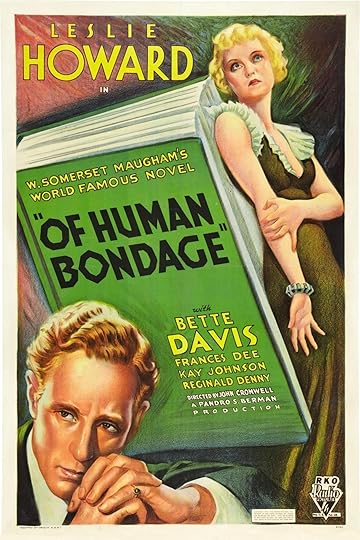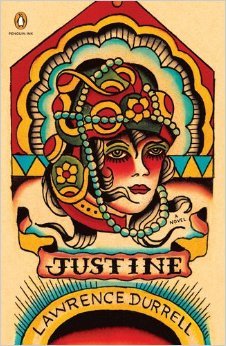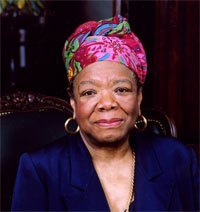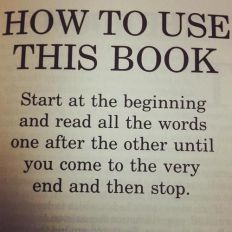Richard Harris's Blog, page 44
October 15, 2016
Quote of the Day
Fewer passages have resonated with me as much on a personal level than this one below from Somerset Maugham’s “masterpiece” (as some claim), Of Human Bondage (1915). Considered one of the greatest novels of the 20th century by Modern Library, many said upon its release that it was essentially a retelling of Maugham’s own life experiences, to which Maugham replied, “This is a novel, not an autobiography, though much in it is autobiographical, more is pure invention.” Whatever the case, it’s an intense and compelling story about what Spinoza called the “Strength of Human Emotions” in his philosophical treatise, Ethics.
“There is nothing so degrading as the constant anxiety about one’s means of livelihood. I have nothing but contempt for people who despise money. They are hypocrites or fools. Money is like a sixth sense without which you cannot make a complete use of the other five. Without an adequate income half the possibilities of life are shut off…You will hear people say that poverty is the best spur to the artist. They have never felt the iron of it in their flesh. They do not know how mean it makes you. It exposes you to endless humiliation, it cuts your wings, it eats into your soul like a cancer.”


October 14, 2016
Upcoming OAC Grant Deadlines
Attention all artists residing in Ontario! There are a number of Ontario Arts Council (OAC) grant deadlines approaching in many different artistic disciplines. Click here to see if you meet the requirements for any of them.


Quote of the Day
In the wake of Nobelgate, Anna North at The New York Times printed a well-crafted response to the decision to give this year’s Prize in Literature to Bob Dylan. Although argued from a slightly different point of view than my own post yesterday, it essentially resonates with the same message: The Swedish Academy got it wrong. Badly.
But instead of focusing on the negative, I thought I’d offer some examples of poetic literary quotes over the few next few days to remind us all of the power and inspiration behind the written word.
This one comes from the hugely talented British expat writer Lawrence Durrell (1912-90), whose most famous tetralogy of works, The Alexandria Quartet, includes some of the most beautiful writing I’ve read. Here’s a taste of TAQ #1, Justine:
“[F]alling in love…is a simultaneous firing of two spirits engaged in the autonomous act of growing up. And the sensation is of something having noiselessly exploded inside each of them. Around this event, dazed and preoccupied, the lover moves examining his or her own experience; her gratitude alone, stretching away towards a mistaken donor, creates the illusion that she communicates with her fellow, but this is false. The loved object is simply one that has shared an experience at the same moment, narcissistically; and the desire to be near the beloved object is at first not due to the idea of possessing it, but simply to let the two experiences compare themselves, like reflections in different mirrors…from here love degenerates into habit, possession, and back to loneliness.”


October 13, 2016
The Nobel Prize in…Lyrics?
Something is rotten in the state of Denmark. Thanks, Will (wink, wink).
Just because you love a person’s work, doesn’t mean you get to change the rules when categorizing it. While some are ecstatic that the world is becoming less rigid in its definition of people and objects – some choose not to be identified by a male or female pronoun and God only knows what the meaning of an American Republican is anymore, for example – there are benefits to having structure, namely, the ability to form logical thoughts and opinions which can then be communicated to others without detailed explanation.
Which brings us to Mr. Zimmerman and his winning of the 2016 Nobel Prize in Literature today. I’d heard that his name was being kicked around for years, but never actually thought he’d win the award. Guess I was wrong.
I suppose the conundrum I’m faced with (and don’t get me wrong, I enjoy Bob Dylan’s music just as much as the next person) comes more from a linguistic approach.
The word “literature” is defined as:
noun
1.
writings in which expression and form, in connection with ideas of permanent and universal interest, are characteristic or essential features, as poetry, novels, history, biography, and essays.
2.
the entire body of writings of a specific language, period, people, etc.:
the literature of England.
3.
the writings dealing with a particular subject:
the literature of ornithology.
4.
the profession of a writer or author.
5.
literary work or production.
6.
any kind of printed material, as circulars, leaflets, or handbills:
literature describing company products.
In a broader sense, the word “literature” can technically include any type of writing on a particular subject, like the literature of supply-side economics.
Does that mean that Robert Mundell should have been awarded the Nobel Prize in Literature – and not Economics as he was – in 1999? I mean, Mundell did, after all, write extensively on the subject of supply-side economics.
Speaking of which, at least the “Economics” Nobel has gone through 12 name changes since its introduction in 1969, so it’s already admitting the award is for, roughly translated, someone who talks/writes about things with the word “economy” or “economics” in it.
If the higher-ups at Nobel, Inc. were comfortable introducing a new prize category in 1969, long after the inventor of TNT’s death, then why not just introduce a Nobel Prize for Music? Like soccer, it’s a universally binding force that has a tremendous impact on the world, right?
Now, granted, the Swedish Academy (which awards the Literature Prize) has made some pretty stellar decisions in the past. They’ve overlooked little-known and obscure people in the field of literature before, such as Henrik Ibsen, Henry James, James Joyce, Leo Tolstoy and Mark Twain. In 1974, after discounting writers that included Saul Bellow, Graham Greene and Vladimir Nabokov, they shrewdly gave the award to literary rock stars Eyvind Johnson and Harry Martinson. Sorry, what’s that? No, no, no. They’re not members of ABBA; they were members of the Swedish Academy that very same year.
Barf.
If I were a betting man, which I am, then I’d put my money on Bob Dylan being a fine choice for the 2016 Nobel Prize for Literature, which I won’t.
Do you not see something inherently wrong with that last statement?
As a curling colleague of mine and upstanding man of letters said to me this morning, “I’d rather an obscure Lithuanian rapper have won the award.”
Yes, indeed, something is most definitely awry in the state of Den…err…Sweden.


Quote of the Day
The novel I’m working on right now, The Redemption of Guilt, has a supporting character who is deeply inspired by Albert Einstein. So, apropos of my imaginatively borne character Tariq, I present to you the short, sweet, and simple Quote of the Day:
Imagination is greater than detail.


Native Moon Ceremony & Thomas King
I was very fortunate to take part in my first Native moon ceremony yesterday. Many thanks to Barbara H. and Elder D. for inviting me -and welcoming me with open arms – to such a spiritual and life-affirming event that is usually hosted by and for women.
I’ll let Anishnawbe Health Toronto describe what I took part in:
“When the moon is full, a woman can do a ceremony to honour and seek guidance from Grandmother Moon. The ceremony may differ from place to place. It is held either on the Full Moon or two days before or after the Full Moon, depending on the teachings given to the women in a particular community. Women gather in a circle, from youngest to oldest, representing the life journey from infancy to old age. Women can ask Grandmother Moon for direction in life, for wisdom, and for help for her children and others. Grandmother Moon can give her healing and balancing energy to women. They drum and sing. Tobacco is placed in the fire and the women ask for the cleansing of the earth, as the water, the lakes, rivers and oceans constitute women’s responsibility. Women bring a container of water and pour this water into a bowl and offer it to Grandmother Moon and to Mother Earth. At the end of the ceremony, the water, now called moon water, can be used as a medicine during the month.”
Aside from history books, my early introduction to Native Canadian culture came through the writings of Thomas King, considered by many to be the leading public intellectual figure on Canadian and American Native culture. Although Joseph Boyden (Three Day Road, Through Black Spruce, The Orenda) has become the darling of the mainstream Canadian publishing industry for his “unflinching honesty” when it comes to his fiction about Native Canadians, it is perhaps Mr. King who has been most vocal in his myriad literary disciplines in bringing attention to Native rights and issues.
Recently, Thomas King was awarded the 2014 RBC Taylor Prize for The Inconvenient Indian: A Curious Account of Native People in North America (2012), what his publisher, the University of Minnesota Press, called “A brilliantly subversive and darkly humorous history of Indian–White relations in North America since first contact.” The RBC Taylor Prize Committee went on to add, “The Inconvenient Indian is at once a ‘history’ and the complete subversion of a history—in short, a critical and personal meditation that the remarkable Thomas King has conducted over the past 50 years about what it means to be ‘Indian’ in North America.”
I’ll end this post by citing two passage from Mr. King’s The Inconvenient Indian, both of which are hauntingly poignant:
“While the hardware of civilization – iron pots, blankets, guns – was welcomed by Native people, the software of Protestantism and Catholicism – original sin, universal damnation, atonement, and subligation – was not, and Europeans were perplexed, offended, and incensed that Native peoples had the temerity to take their goods and return their gods.”
“Ignorance has never been the problem. The problem was and continues to be unexamined confidence in western civilization and the unwarranted certainty of Christianity. And arrogance. Perhaps it is unfair to judge the past by the present, but it is also necessary.”


October 12, 2016
Adventures in Russia’s Far East

I’m a sucker for good adventure stories, fiction or non-fiction. From The Count of Monte Cristo, The Arabian Nights: Tales from a Thousand and One Nights and Heart of Darkness to Herodotus’s The Histories, The Travels of Marco Polo, Jon Krakauer’s Into Thin Air and Robert Young Pelton‘s The Adventurist: My Life in Dangerous Places, they all have a jaw-dropping story to tell in far-off lands and bygone eras.
But not all great adventure stories are by famous writers or about well-known places like Mt. Everest, Timbuktu or Shangri-La.
Take, for example, Donald Clark’s Living Dangerously in Korea, easily one of my favourite books on my second home.
Another example is a new literary work to join the ranks of awesome adventure stories, an updated translation from the legendary explorer of Russia’s Far East named Vladimir Arsenyev. While serving in the Russian Imperial Army, Arsenyev travelled extensively throughout the region from 1902-1930, subsequently wrote about his experiences in great detail, and, so I’m led to believe, in beautiful prose devoid of any hubris. (NOTE TO SELF: Does every Russian writer always knock it out of the park?)
Yet Stalin, in all his wisdom, thought it would be a stupendous idea to censor much of Arsenyev’s writing (the original books were finally released in Russian in 2007). However, it was only when a young go-getter from the U.S. named Jonathan Slaght recently retranslated the original account (written in Russian) of Arsenyev’s first book, Across the Ussuri Kray (1921), and published it under the same name through Indiana University Press (2016), that we English readers got a sense of what the Wild East was once like.
Slaght is now the Wildlife Conservation Society’s coordinator for Russia and Northeast Asia, and Michelle Nijhuis wrote a thoroughly engaging piece in this week’s The New Yorker about Ansenyev and Slaght (make sure you check out the photo gallery, which is almost like a journey to another world). If you’re intrigued about what a pre-industrial Russia’s Far East looked like a century ago – the only place on Earth where brown bears, leopards and tigers co-exist because the region was spared from being touched by glaciation during the last Ice Age – take the time to read this article entitled “A Fuller Vision of Russia’s Far East.”


Quote of the Day
It may seem like there’s a new National/International Day of SOMETHING every morning you wake up, but some do a better job of raising awareness than others. In light of yesterday’s National Coming Out Day (October 11), I’ll let Tom Blunt from signature-reads.com set this one up:
“To those looking on from the outside, coming out as queer may no longer seem like a terribly momentous occasion. This act, however, remains a singular event in the life of anyone who’s been keeping a pivotal part of themselves concealed — whether deliberately, or because their natural comportment causes them to pass among others undetected.”
In light of this theme, I’d like to offer a quote from the amazing James Baldwin and his seminal work of fiction, Giovanni’s Room (1956), which would have required great pathos to write and herculean strength to publish back in his day.
“People can’t, unhappily, invent their mooring posts, their lovers and their friends, anymore than they can invent their parents. Life gives these and also takes them away and the great difficulty is to say Yes to life.”


October 11, 2016
Quote of the Day
Maya Angelou was a titan of 20th-century American letters. Probably best known to most as a poet and the author of I Know Why the Caged Bird Sings (1969), she was also an influential civil rights activist and voice for both African-Americans and women as a whole for decades.
There are many beautiful and inspirational examples of her writing I could choose from when it comes to quoting Ms. Angelou, but I like this one below, partly because it’s simple and poetic, but also because I too believe in this life mantra.
“My mission in life is not merely to survive, but to thrive; and to do so with some passion, some compassion, some humor, and some style.”


A Word We Need in English
What would we do without borrowed words? Unless you live in France or North Korea, you undoubtedly have hundreds, if not thousands, of loan words you use on a daily basis without even realizing it. Have you ever seen someone’s doppelgänger in public? Thank you, German. And how calls it a tidal wave anymore? It’s a tsunami, thank you very much, Japanese. Modus operandi, aficionado, prima donna, chutzpah? Thank you Latin, Spanish, Italian and Yiddish
I’ve said it once and I’ll say it again: I love languages. Many thanks to Jase in Space for sending me this link to openculture.com.
Even the most voracious readers are guilty of buying more books (or borrowing books from friends/taking out books from the library) than we end up reading. Often, these same books begin piling up like paper pagodas. In extreme cases (hint, hint, producers of Hoarders), entire rooms are taken over by the written word.
Although this may sound, I don’t know, rustic (?) – perhaps even a little sexy mild to all you book lovers out there – all these centuries on and we still don’t have a word for this behaviour in English.
“Hey, Miffy, I hear you’re a piler-up of literary works!”
Something about that statement rings decidedly hollow.
Alternatively, Japanese does in fact have a word for this. It’s called tsundoku, and here’s the exact definition:
(n.) buying books and not reading them; letting books pile up on shelves or floors or nightstands
So the next time you walk into a person’s office/room/home and see a cornucopia of paper pagodas and want to look both enlightened and pretentious, you can say, “Man alive! You sure do know how to tsundoku your space!”
P.S. In case this same person(s) has difficulty figuring out how to deal with the aforementioned problem, direct them to the photo at the top of this post.













